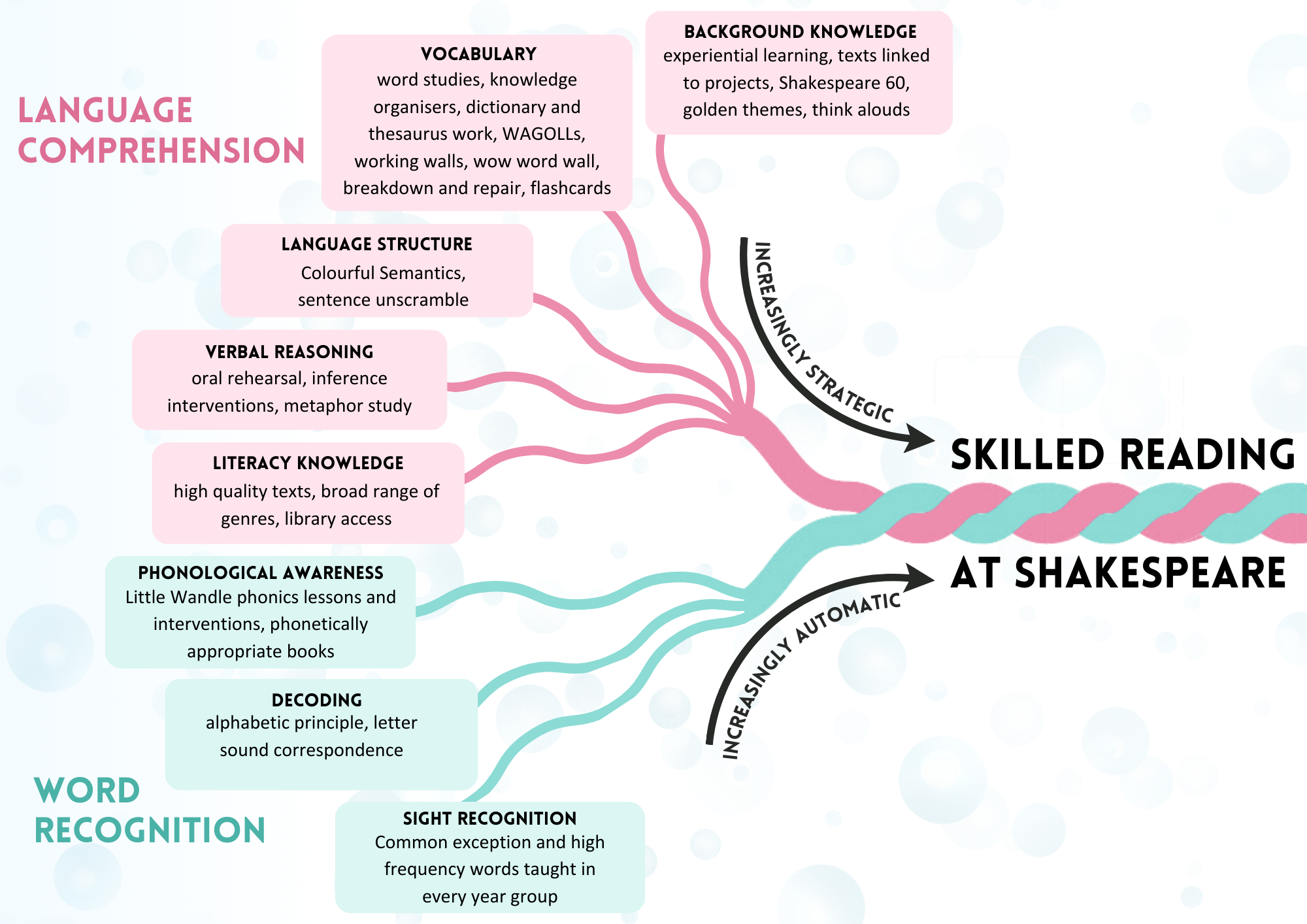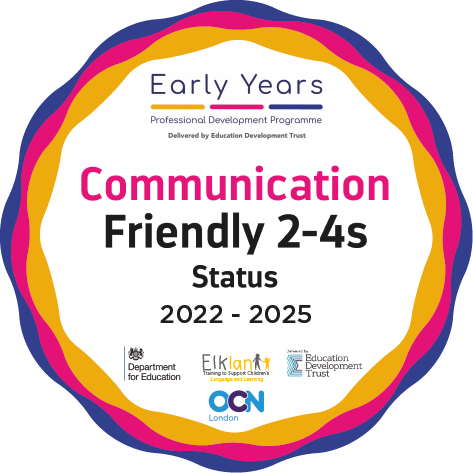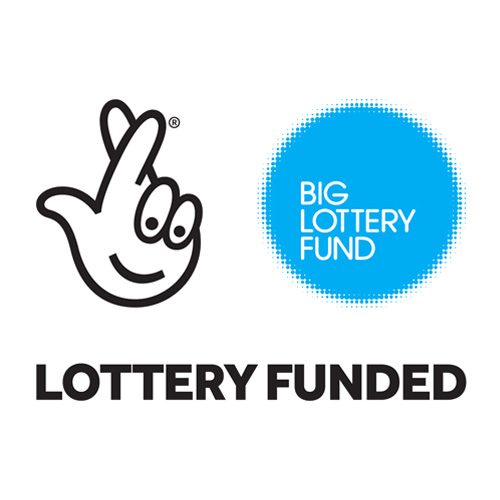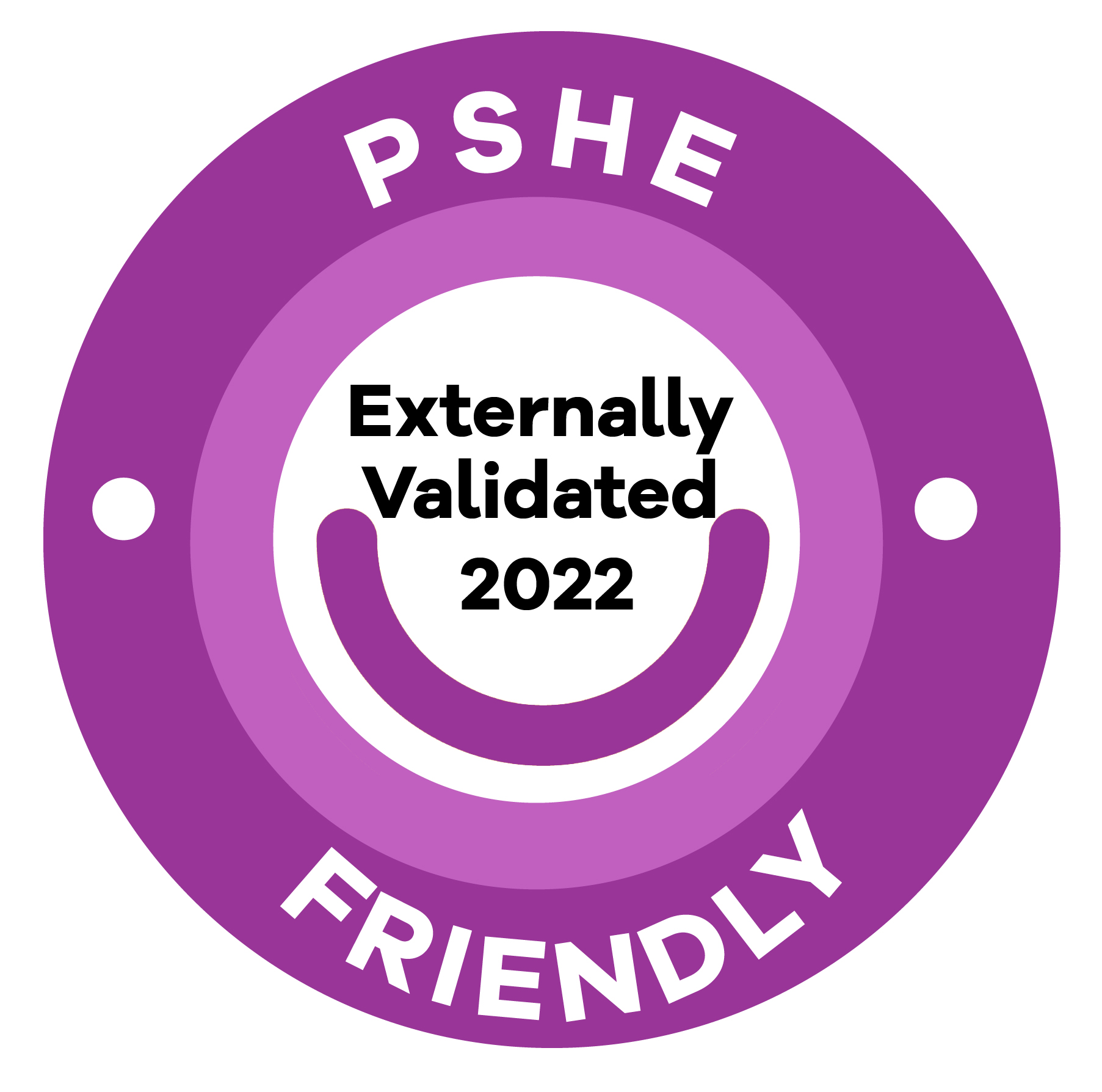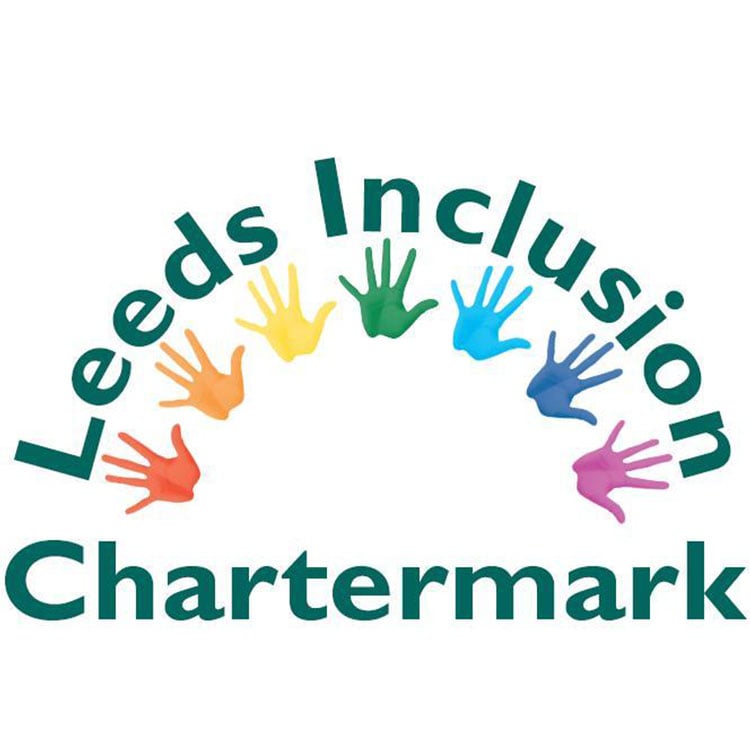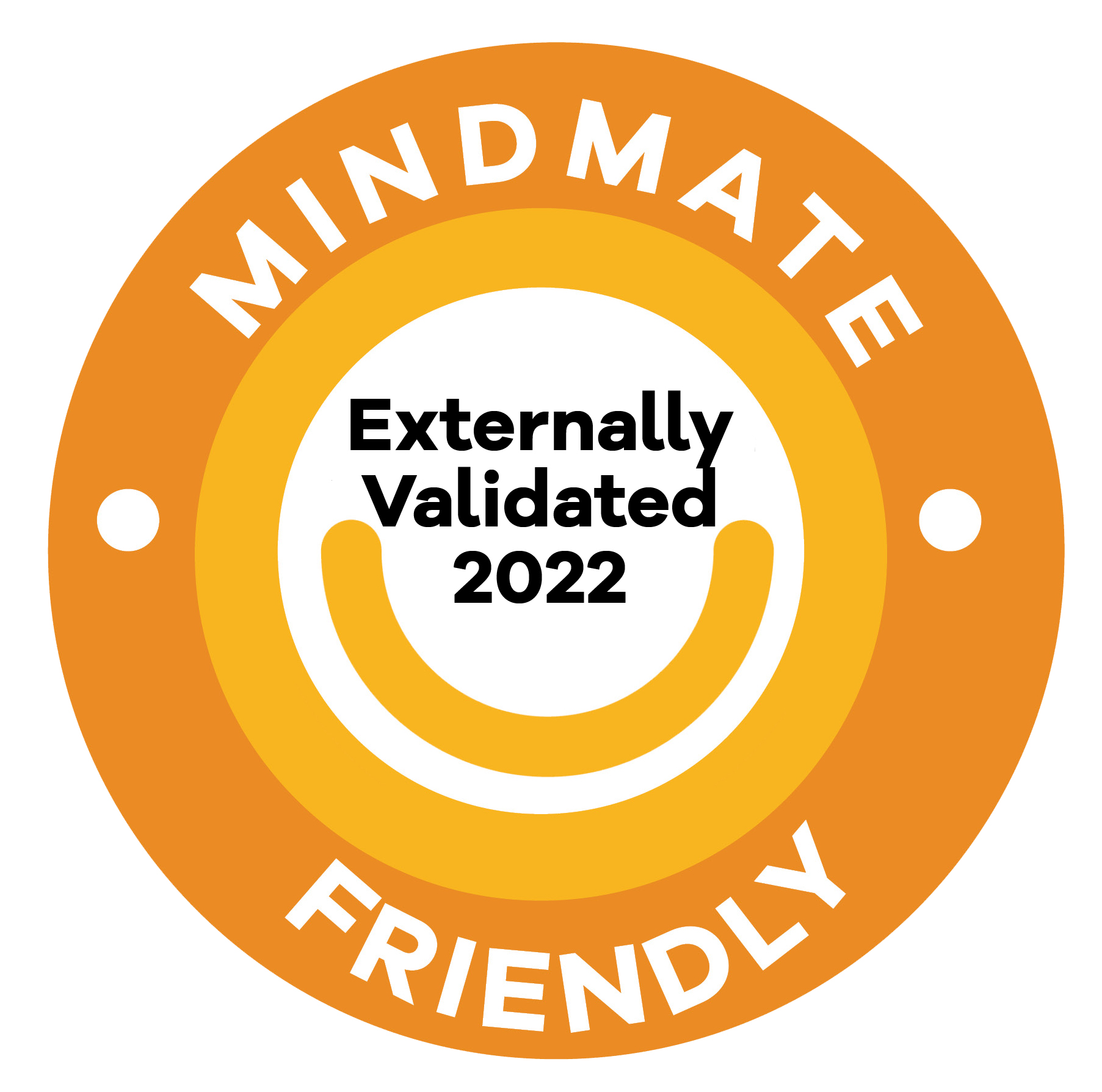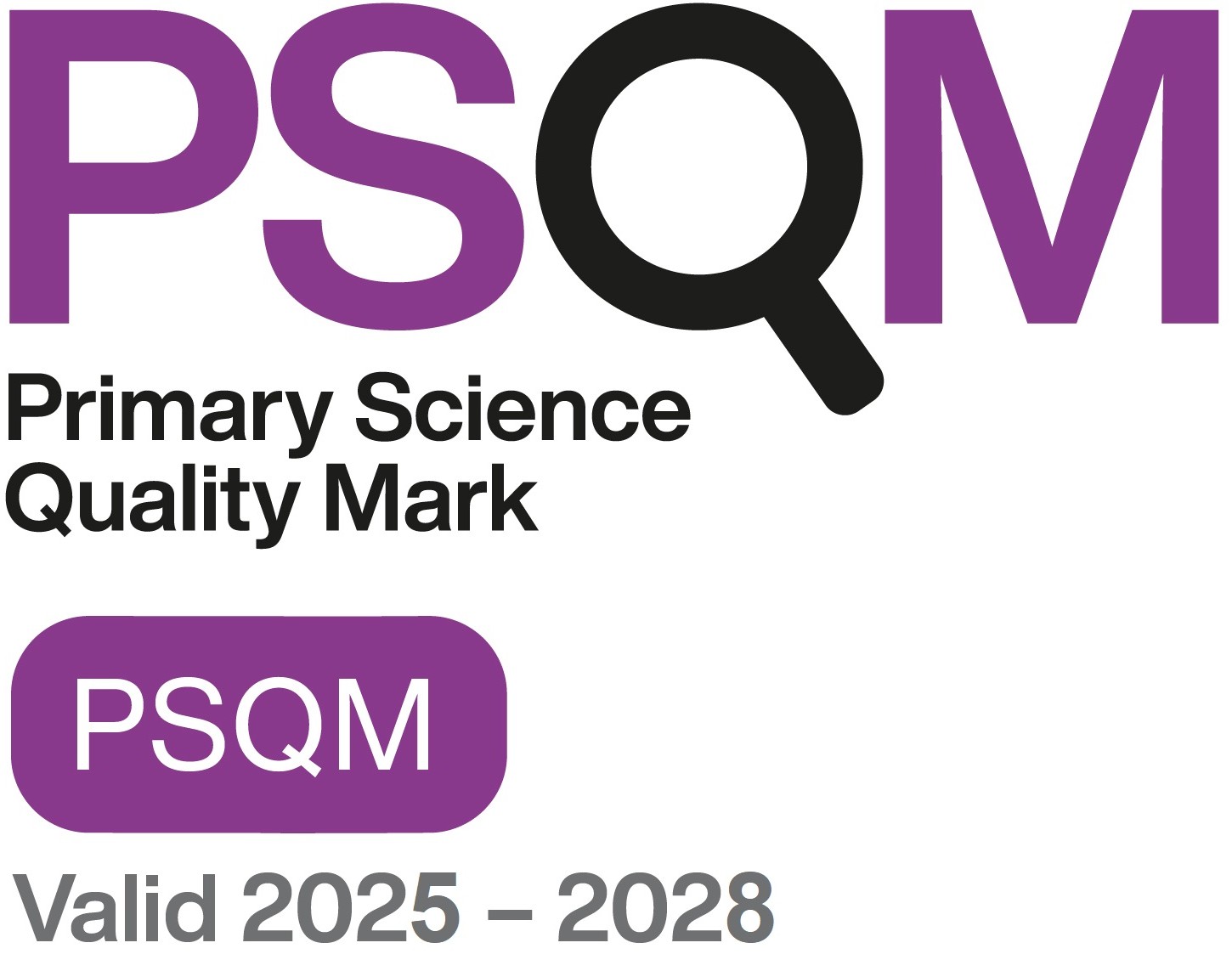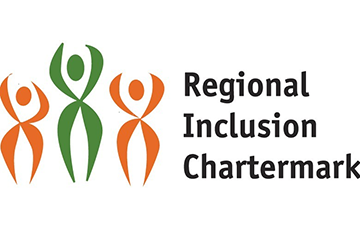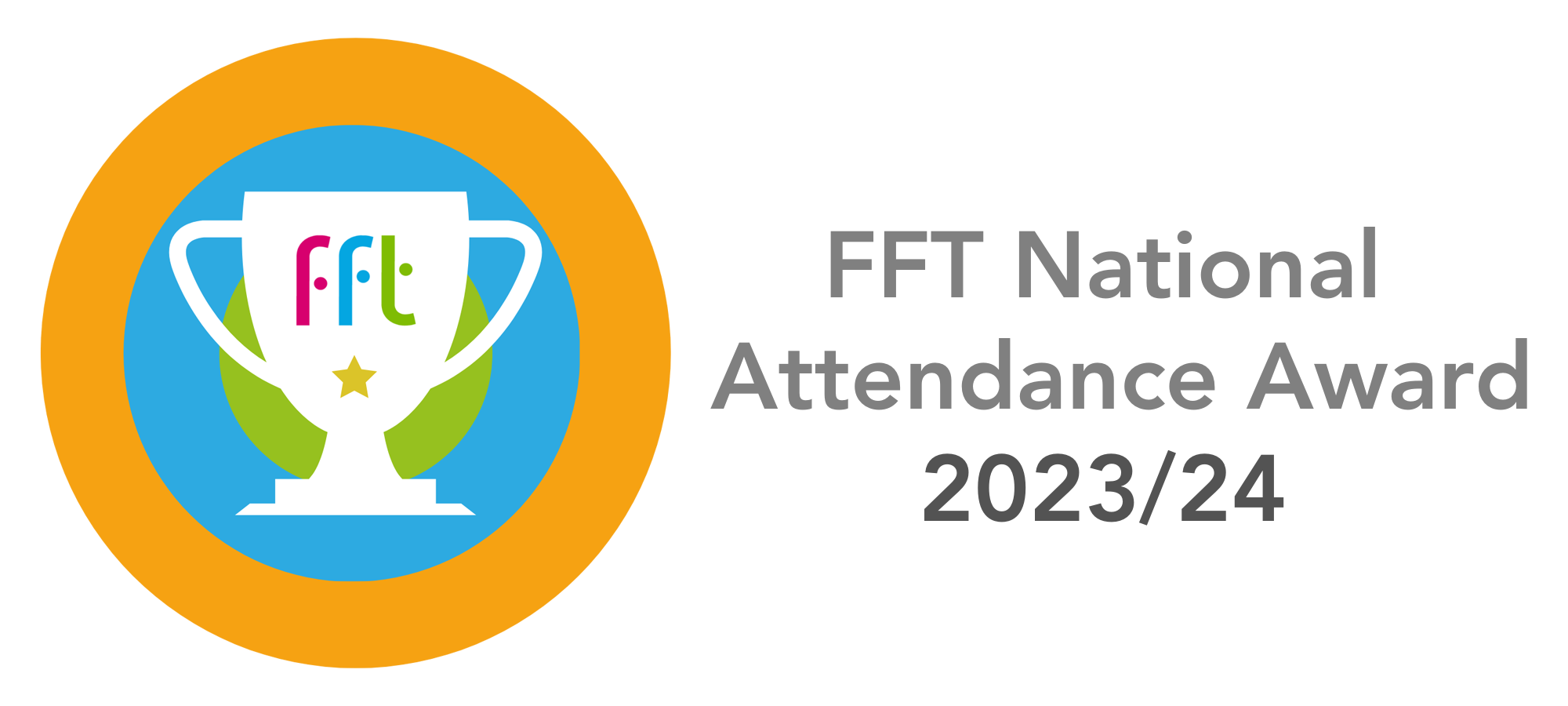
Reading Excellence from the Heart of Leeds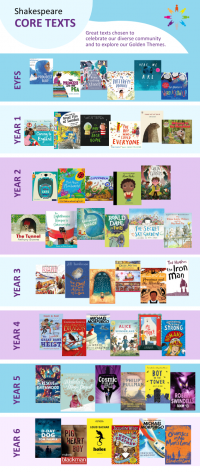
Central to our curriculum is our vision for all children to be excellent readers. We carefully choose core texts for every year group, which can be seen here. These books are high quality in content, cover relevant themes and issues, and feature diverse and relevant characters will be used to drive and inspire our children’s love of reading. Their reading skills will be prioritised as the key that enables them to be successful learners across all aspects of the curriculum.
At Shakespeare Primary School we follow our model for teaching reading to ensure that there is high quality and consistent teaching of reading skills throughout school. Skilled reading is complex but can be split broadly into the two categories of word recognition and language comprehension.
Word Recognition
We teach Little Wandle Letters and Sounds Revised, which is a systematic and synthetic phonics programme. We start teaching phonics in Nursery and follow the Little Wandle Letters and Sounds Revised progression, which ensures children build on their growing knowledge of the alphabetic code, mastering phonics to read and spell as they move through school. All children in school who are in the early stages of language development receive daily phonics teaching and intervention. To learn more about how we teach phonics please click here.
Beyond the teaching of phonics word recognition skills are taught through word study, break down and repair flash cards, ‘I say, you say’ and the repeated exposure to key vocabulary across the curriculum. The Shakespeare Reading Routine is established in early years and used throughout school as a tool to ensure all children have a strategy to tackle unfamiliar words.
Language Comprehension
The teaching of comprehension skills in Early Years to Year Six, starts with a carefully chosen cannon of quality fiction and non-narrative core texts. In each reading lesson there is one specific skill based learning objective for the whole class based around the same text. Every child has their own copy of the book. The questions, tasks, activities or level of support are scaffolded for different abilities so that all children can access new learning and be challenged. Whole class reading supports rapid progress of lower ability readers. Research suggests 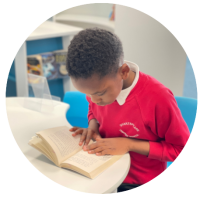 this is due to exposure to higher-level questions and answers.
this is due to exposure to higher-level questions and answers.
On a Monday we have our Big Read where we read the relevant chapters or pages and explore the context for the book and provide any relevant background information to help children deepen their understanding of the characters and plot. There is a combination of teacher, paired and individual reading with a focus on fluency. We also teach new vocabulary equipping children to tackle new words with increasing independence. Monday Big Read learning is focused on teaching word attack skills, modelling think alouds and helping children to ‘get the gist’ of what they have read.
Tuesday and Wednesday
Reading skills must be explicitly taught. To help simplify them for children they can be explained as reading with DERIC:
- Decode: Word Reading
- Explain: Discussing vocabulary in context and discussing understanding of whole texts
- Retrieve: Finding Information in the text
- Interpret: Inference skills with an emphasis on using evidence
- Choice: Focus on author’s choice of words and layout
On a Tuesday teaching focusses on one content domain and specific comprehension skill as the basis for the DERIC skills session. This is the focus for all questions which are taught using the ‘Me, Us, You’ scaffolding strategy leading to all children answering questions independently by the end of the lesson.
On a Wednesday children answer a mixture of DERIC question types independently on a new and unseen portion of text. The DERIC questions are carefully crafted to revisit previously taught skills.
Thursday and Friday reading lessons focus and build upon the daily Fluency Five reading aloud task which is a part of all reading lessons. Within these sessions guided oral reading instruction and repeated reading is used. Fluent reading of a text may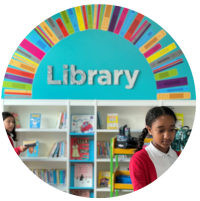 be modelled by an adult then children read the same text aloud with appropriate feedback; or children re-read a short and meaningful passage a set number of times or until they reach a suitable level of fluency. Words that are read inaccurately are added to flash cards and the working wall by support staff who will revisit these words with children each day through intervention. On a Thursday a whole class feedback session based on the highest leverage development point from the independent work on Wednesday where children will have opportunity to discuss model answers and improve their own responses.
be modelled by an adult then children read the same text aloud with appropriate feedback; or children re-read a short and meaningful passage a set number of times or until they reach a suitable level of fluency. Words that are read inaccurately are added to flash cards and the working wall by support staff who will revisit these words with children each day through intervention. On a Thursday a whole class feedback session based on the highest leverage development point from the independent work on Wednesday where children will have opportunity to discuss model answers and improve their own responses.
We Love Books
Shakespeare teachers have put together lists of book titles we think are excellent reads for children in each year group which can be found here on our home reading resources page.
We have chosen:
- books that are great stories
- books that have been written by one of our curriculum authors
- books that are representative of our diverse community
- books that link to one of our six Golden Themes: Voice and Influence, Sustainable Development, Identity and Diversity, Human Rights, Peace and Conflict, Social Justice and Equity
All the titles from each year group list are on the shelves in our school libraries and in each classroom’s book area but they're also a great starting point for parents looking to purchase some new reads or when visiting the local library. Every learning project in school is accompanied by a brilliant set of books selected to support the specific knowledge being taught and to build upon the interest developed through the project. These books and many more are available in our school libraries which are open every lunch time. Our school libraries are a welcoming space that host class library sessions, family library events, one-to-one reading with our Beanstalk Reading volunteers and much more. If you can't find a book you like or you'd like the next in a series then simply ask a Reading Ambassador who'd be only to happy to help.
Reading beyond the classroom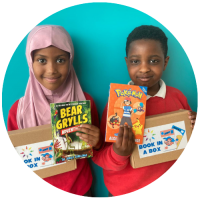
We work closely with community partners including local authors, Leeds Library Service, The Compton Centre and Leeds Playhouse to develop a deep love of reading. For children who read regularly at home, every week they're entered into a book in a box (KS2) or a book in a bag (KS1) prize draw. We use parent surveys, competitions, holiday clubs and community visitors to help support and equip parents with access to great books and reading activities beyond school. Our Reading Ambassadors attend the Leeds Book Awards and other local events to feedback to their classmates and teachers about exciting new books. They also organise World Book Day celebrations, share book reviews in assembly, staff the library at lunch times, read with children in younger classes and are currently organising 'Read more' events for each month of the year.

